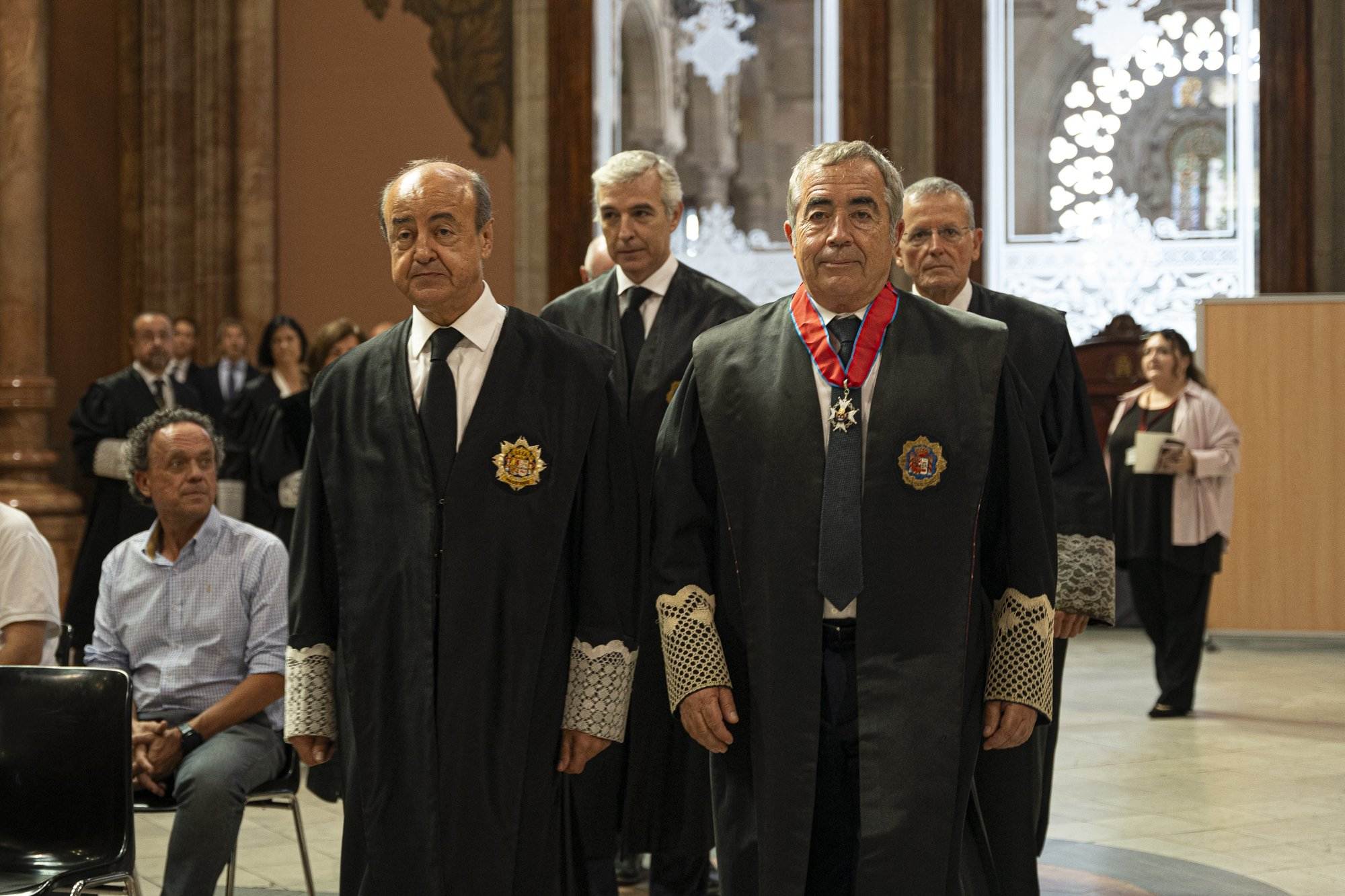The High Court of Catalonia (TSJC), presided over by Jesús María Barrientos, is the first court to start applying the amnesty law, which entered into force this Tuesday after being published in the state gazette. Specifically, it notified the public prosecutor's office, prosecutions and defences that within 10 days they must give their views on whether this law should be applied in five cases, related to the 9-N - the unofficial Catalan independence 'Consulta' of 2014 - and the 1-O - the referendum of October 1st, 2017 - as the TSJC press office reported this Tuesday. The amnesty law, agreed by the PSOE with the pro-independence parties Junts and ERC in the negotiations for the formation of a new Spanish government, specifies that judges and courts must make this first consultation, before executing any decision.
The cases are:
- The 9-N cases against Catalan president Artur Mas and former ministers Joan Ortega and Irene Rigau, convicted of disobedience, who have already served their sentence of a ban on public office holding.
- The conviction of Catalan president Quim Torra for disobedience for not removing banners giving support to "political prisoners", another sentence already served.
- The conviction of the former mayor of Agramunt, Bernat Solé, over the October 1st referendum, with a penalty of a ban on holding office already extinguished.
- And the case of the former Catalan parliamentary deputy for the CUP party, Pau Juvillà, also for refusing to remove yellow ribbons from public buildings.
In these cases, even though the sentence has been served, the courts must decree the dismissal of the case and that the people convicted be now exonerated from any responsibility, as if the independence process, in this criminal case, had not existed.
- And, finally, the fifth case, which still has its trial pending: that of the role in the 1-O referendum of the former Catalan government officials from the Republican Left, Josep Maria Jové, Lluís Salvadó, who face up to 7 and 6 years in prison respectively, and Natàlia Garriga, a ban on office holding.

